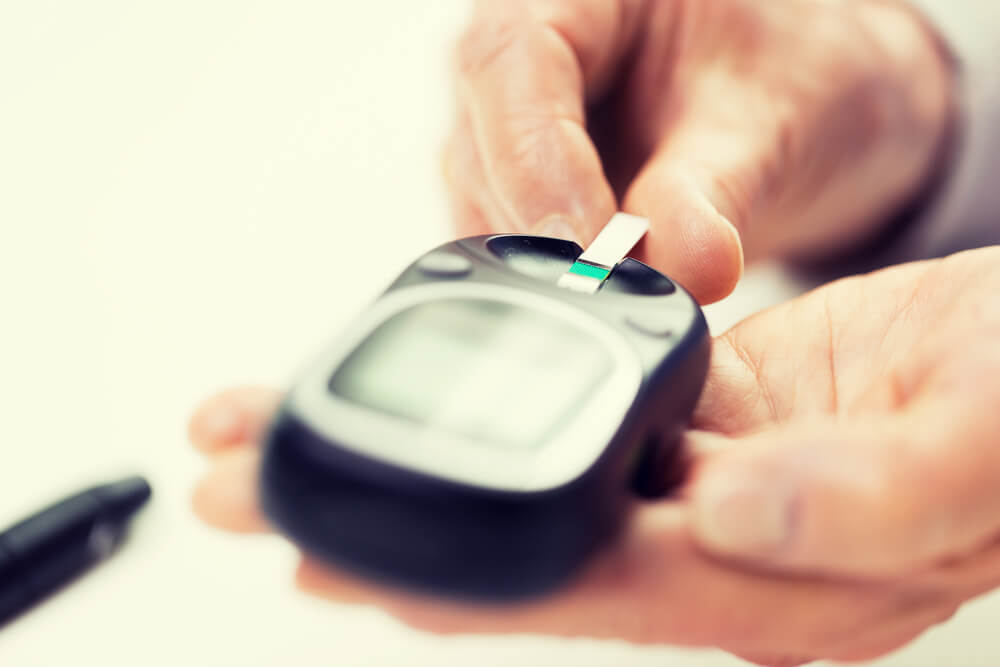Developing Diabetes Later in Life Can Bring a Slew of Health Problems…
Diabetes old age onset in the United States affects more than 25% of the 65 and older population. This epidemic is scary because it provides a huge risk for older adults with diabetes of developing microvascular and cardiovascular complications.
If you are unsure what diabetes is, it is a serious disease that has to do with the blood glucose (sugar) levels in the body being too high, or too low. Our bodies turn what we ingest into glucose while at the same time, the insulin in our bodies help turn this glucose, or sugar, into energy. If you have diabetes this means that your body probably doesn’t produce enough insulin to help this sugar convert into energy.
How Does Diabetes Old Age Onset Begin?
Diabetes old age onset begins commonly with weight gain. Weight gain commonly begins with inactivity which allows for blood sugar in the body to elevate. When someone has diabetes, the last thing you want is for someone to have high blood sugar levels. Keeping active can deter diabetes old age onset and help with a healthy quality of life. Here are a few ways to work toward prevention of diabetes at any age:
More Physical Activity – lose weight, practice aerobic exercise and resistance training
Fiber – Fiber can reduce risk of diabetes by improving blood sugar control
Whole Grains – make half of your grains whole grains, it can help reduce the risk of diabetes
If you believe that you may be predisposed to diabetes, speak to a doctor about preventions and ways that you can change your lifestyle to remain healthy into old age. When it comes to getting ahead of pre diabetes or diabetes onset, medical professionals recommend that overweight adults with risk factors be screened in a medical setting every 1-3 years.
The negative side of diabetes onset comes from tips from the American Diabetes Association, Diabetes old age onset is more prevalent in non-Hispanic whites and the scary truth is that older adults with diabetes have the highest rates of major lower-extremity amputation. If you are over 45 years old and are overweight, you should speak to your doctor about a blood glucose screening.
Old Age Diabetes Symptoms
Those who have not yet been diagnosed with diabetes may not be aware they have it, especially if it is type 2. Some old age diabetes symptoms can be noticed as:
- feeling tired
- hungry
- thirsty
- weight loss without trying
- frequent urination
- blurred vision
- skin infections
- slow healing cuts, bruises
Managing Diabetes in Elderly
If you have already been told that you have diabetes you will be given the best treatment plan based on what your medical professional assigns. Then you can continue your treatment everyday that can include, but isn’t limited to; medicine, exercise, diet, insulin etc. The best way tips for managing diabetes in elderly is to
Track glucose: Glucose levels can be dangerous to the overall health of the individual weather they are very high or very low. Make sure to understand how to monitor glucose levels at home.
Healthy food choices: It’s important to understand what types of food can change or affect glucose levels. You want to make sure that the correct food choices are being made.
Exercise: Weather it’s a short walk or a bit of cardio, daily exercise for the elderly can improve high blood sugar levels.
Medication: make sure that the correct medication is being taken, even when you are feeling good.
At the end of the day, weather you are predisposed to diabetes or already have it. Watching your diet and exercising daily can greatly affect your blood glucose levels. It’s understandable that it may be difficult for some people but even doing a bit can go a long way.
Sources:
http://care.diabetesjournals.org/content/35/12/2650
